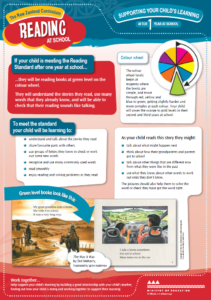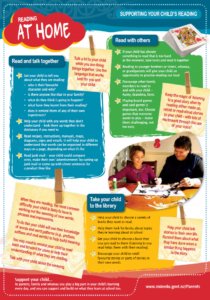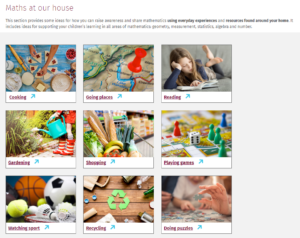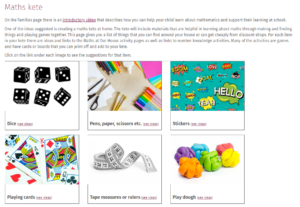This page has resources and links for our parents and caregivers to use.
Let your child know you’re interested and involved
Being interested in your child’s education and involved in their school or kura shows them that their education is important to you, and it becomes more important to them as well.
- ask what your child is learning at school or kura and what they’re finding easy or hard. Knowing what they’re learning will give you clues about extending their learning beyond school or kura
- ask about homework set by the teacher, what you can do to help and support them in doing it.
Ministry of Education website page with ideas to help with reading, writing and maths – click here
Ministry of Education Information Sheets
The Ministry of Education has produced material with information and tips on getting involved in your child’s reading, writing and maths learning while they are in years 1-6 at school. While these are based on the National Standards which we no longer use they do contain some useful ideas.
Useful Websites
MOE Learning from Home Website click here
Home Learning TV click here
Go Noodle (also on Youtube) – Thousands of ‘brainercise’, dancing, strength and mindfulness videos
Oxford Owl -Free resources to support learning at home; Advice and support for parents; Educational activities and games; Free eBook library for 3- to 11-year-olds.
Maths Playground – ideas for those more visual learners; Requires registration (free, parents can do)
More maths games – lots to choose from. Some will require Flash player.
Khan Academy – fabulous for self directed learning in the Senior School.
Kiwi Families – lots of links to other sites.
Math Playground – as well as the exciting games, be sure to check out the Maths Manipulatives and the Thinking Blocks. These provide great opportunities for you to talk with your child about maths.
Interactive sites for Maths – lots of different games to explore.
Junior Websites
Learn English Kids click here
Adapted Mind Maths click here
Here’s a few ideas for kids and families to do ( some better for younger/ some for older/ some for all)
- How to tie your shoes ( you’d be surprised
)
- How to follow a recipe
- How to make a meal plan & grocery list on a budget
- How to write a CV
- How to look after the house ( mow the lawn, vacuuming, dusting etc)
- How to read ( ask them questions about what they’re reading, read together, make predictions, discuss why characters behave the way they do)
- How to write ( keep a journal, keep a gratitude list, write instructions for something, write an alternate ending to favourite story or movie, write a story, keep a book of facts)
- How to maintain a vehicle ( how to check the oil, how to change a tire)
- Build physical literacy ( do yoga, play catch, play Frisbee, kick a soccer ball, shoot hoops)
- Build Fine motor skills ( draw, colour, knit, crochet, cross- stitch, sew, weave)
- Go outside! Walk, Bike, most outdoor activities keep you at least 10m away from other people.
- How to exist without the internet
- Spend time with your kids! Talk to them – ask them about their hopes & dreams.
- Have them research things they’re interested in ( a place they’d like to visit, a career they might like, a hobby they’d like to learn)
- Have them do a STEM challenge ( build a tower, boat, bridge) out of random materials around the house
Maths Ideas
Click here for Maths at our House page from the NZ Maths website
Click here for the Maths Kete page
Click here for Supporting Maths at Home page from the NZ Maths website
Key Competencies and our PRIDE Values
Your child is learning a range of skills and abilities (key competencies in the New Zealand Curriculum which we use through our PRIDE values) to help them to do well in life. There are lots of things you can do to help your child develop and use these.
The world your child lives in is very different to what it was like when you were growing up and is continuing to change. It is no longer enough to just learn “facts”.
No-one knows exactly what life will be like for today’s children when they become adults, but we do know that they will need to develop a range of key competencies, so that they can adapt and function well in the world.
These key competencies are:
- Thinking
- Using language, symbols, and texts
- Managing self
- Relating to others
- Participating and contributing
These key competencies are an important part of your child’s learning at school. They are included in the New Zealand Curriculum and are woven into all the teaching that takes place.
How can I help at home?
The key competencies are a really useful way to think about and get involved in your child’s learning. There are lots of ways to do this:
-
- Understand what’s happening at school – ask your teacher how they are teaching your child about key competencies, why, and what you can do to help at home
- Be enthusiastic and interested in what your child is doing at school – ask your child what they learned today, talk about the skills that they are developing, and how useful they are in life
Do things together that uses one or more PRIDE values/key competencies this shows your child that what they learn at school is connected to the things they do in everyday life, for example:
-
- Planning a meal – thinking; using language, symbols and texts, managing self
- Taking part in a powhiri at your marae – relating to others; participating and contributing, using language, symbols and texts
- Being in a sports team – participating and contributing; relating to others, managing self
- Mastering the rules of an online game – thinking; using language, symbols and texts.
Thinking – Our PRIDE Value Initiative
Is about developing the sort of thinking skills that children need in the world today. They are using creative and critical ways of thinking to make sense of information, experiences and ideas.
Things to try at home
- Talk to your child about how thinking is important to make sense of everything they do at school and at home
- Ask your child’s teacher to explain the thinking strategies they are using at school so that you can notice and reinforce them at home. Ask the teacher what you can do to build on them at home
- Notice and praise your child when they use different sorts of thinking, like mathematical and logical thinking, or knowing how to find flaws in thinking (such as assuming that something is true based on a few examples)
- Make it fun. Playful thinking is a great way of building the brain and your child’s thinking abilities. Games of all types – make believe, imaginary friends, “what if” flights of fancy, and so on all provide opportunities for playful thinking.
Using language, symbols, and texts – Our PRIDE Value Participate
Is about the different ways to communicate and understand information, experiences and ideas.
Things to try at home
- Check whether your child understands the meaning in different types of texts or languages. If they tell you that something “is” so, ask them how they know, or what makes them think that. This can help them think about other possibilities, which is what the teachers do at school as well
- When you flick though the junk mail or watch television together, talk about the language the advertisers have used to make you want to buy their products. Encourage your child to think about how the language makes the advertising claims believable, and what information they leave out and what that also tells us
- Comment when you see a symbol used in a new way, or the same symbol used to mean different things in different contexts. Talk about who might have “invented” each use, and why. For example, the @ sign so widely used now for e-mail addresses used to mean “and the cost is” – “three packages @ $2 = $6 total”.
Managing self – Our PRIDE Value Determination
This means being self motivated, having a can-do attitude and understanding yourself as a learner.
Things to try at home
- Notice and praise your child when they do regular chores or homework without having to be asked. This shows them that you value their independent self-management
- Talk about the challenges of learning, not just about what has been learned, and show them that you are always learning as well
- Support and encourage your child when the going gets tough. For example, say “the periodic table, or paragraphs for a young child, can be really hard to understand, so we’re working at it together”. Be positive, and show them that you have confidence in them, rather than letting them make excuses.
Relating to others – Our PRIDE Value Respect
Is about relating well to a diverse range of people, and includes things like begin able to listen well, see different points of view, negotiate and share ideas.
Things to try at home
- Talk openly about different ways of “being” in the world. Compare the different cultures in your life, so you can talk about how things are in different contexts, and why
- Be open to, and show respect for difference. No-one is the same. Children are then more likely to show respect too
- Play the “devil’s advocate” from time to time. It is great for children to practice seeing things from different perspectives and to understand that respectful debate is healthy
- Think about how well you listen to, and negotiate with your children. Your child learns how to relate to others from you.
Participating and contributing – Our PRIDE Value Participate
Means being involved in things that are going on, being a good group member, contributing, including and creating opportunities for others.
Things to try at home
- Be a good role model. You might be surprised at what knowledge and skills you have that the teacher would appreciate you contributing. For example, in schools where students are learning how to grow food, adults with gardening skills can help
- Encourage your child to take part in things they haven’t tried before. This challenges them and gets them involved in new activities and groups. Talk to them about the new skills and knowledge they gain
- Support your child when they take on leadership roles at school or in the community. This could be something as simple as being the bin monitor for a week, caring for a class pet over the holidays, looking after younger students during breaks or at a sports day, taking care of equipment or resources or speaking during an assembly. Schools are usually really good at providing lots opportunities for students to step up and take a lead.
Our Excellence value runs through all the Key Competencies
As well as using the information in your child’s report, and the above guides, other ways to support your child’s learning include:
- listening to them talk about what they are learning and talking with them about it
- providing enjoyable opportunities outside school for practising what they have learnt at school
- telling them you are proud of what they have learnt and the progress they have made
- keeping in contact with your child’s classroom teacher











